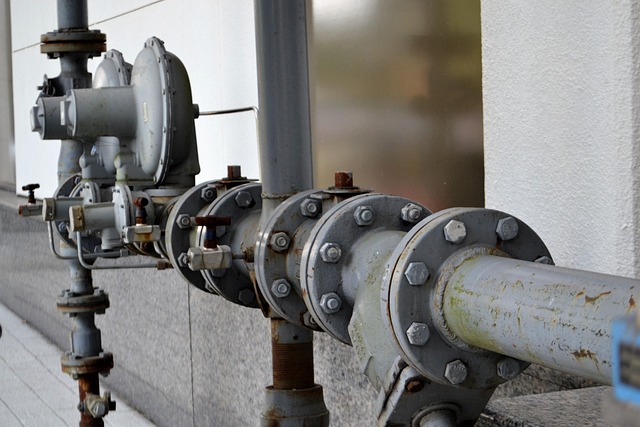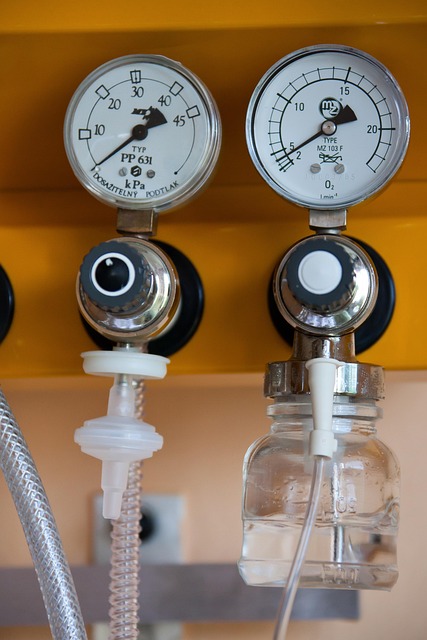Homeowners often delay addressing common plumbing issues like low water pressure and leaks until they escalate, leading to waste and higher bills. Professional plumbers diagnose and solve these problems by checking regulators, cleaning aerators, and detecting mysterious leaks. Regular maintenance, including installing pressure regulators and replacing aerators, prevents clogs, reduces water waste, and enhances overall plumbing system performance. Early detection and repair of issues like leaks and sediment buildup prevent long-term damage and costly repairs. Consider a booster pump for severe low water pressure cases.
Are you tired of dealing with weak water pressure or persistent plumbing leaks? It’s time to call in a professional plumber. This expert guide delves into common plumbing issues like low water pressure and leaks, highlighting the vital role plumbers play in accurate diagnosis. Learn effective solutions, from installing pressure regulators and faucet aerators to addressing sediment buildup with booster pumps. Plus, discover valuable tips for preventative maintenance and choosing the right plumber to keep your pipes flowing smoothly.
- Understanding Common Plumbing Issues: Low Water Pressure and Leaks
- The Role of a Professional Plumber in Diagnosing Problems
- Techniques for Improving Water Pressure: Pressure Regulators and Faucet Aerators
- Addressing Sediment Buildup and Boosting Water Flow with Booster Pumps
- Tips for Preventative Maintenance and Choosing the Right Plumber
Understanding Common Plumbing Issues: Low Water Pressure and Leaks

Many homeowners often overlook common plumbing issues until they become severe. Two of the most frequent problems that require professional attention are low water pressure and leaks. Low water pressure can be frustrating, making everyday tasks like taking a shower or washing dishes less enjoyable. This issue could be due to various factors such as clogged pipes, corroded fixtures, or even a faulty pressure regulator.
Plumbing leaks, on the other hand, can lead to significant water waste and unexpected spikes in your water bills. They can occur in faucets, pipes, or appliances like water heaters. Leaks might be caused by worn-out gaskets, loose connections, or sediment buildup in pipes. To address these issues effectively, consider reaching out to a professional plumber who can diagnose the problem and recommend appropriate solutions, such as installing faucet aerators or even boosting your water pressure with a booster pump if needed.
The Role of a Professional Plumber in Diagnosing Problems

When faced with mysterious plumbing issues like low water pressure or persistent plumbing leaks, a professional plumber is your best ally. They possess the expertise and tools to diagnose problems accurately. For instance, if you’re experiencing low water pressure, a plumber can check for issues with your pressure regulator, which controls the flow of water pressure into your home. Sediment buildup, often unnoticed, can restrict water flow, leading to weak or intermittent pressure.
Professionals also know how to identify and fix faucet aerators—small devices at the end of faucets that mix air with water, affecting flow rate. Over time, these aerators can become clogged with mineral deposits, reducing water flow and potentially causing low pressure throughout your home. Moreover, if you suspect a leak but can’t locate it, a plumber’s advanced detection methods can pinpoint the source, whether it’s a subtle drip or a more significant problem like an old pipe with rusted joints. They may also recommend installing a booster pump to increase water pressure in homes with inadequate water supply.
Techniques for Improving Water Pressure: Pressure Regulators and Faucet Aerators

Many homeowners often experience low water pressure issues, which can be frustrating and inconvenient. Luckily, there are simple yet effective techniques to improve this, two of which are pressure regulators and faucet aerators. A pressure regulator is a device that maintains consistent water pressure throughout your plumbing system by adjusting the incoming water flow. This is especially useful if you have fluctuations in water pressure due to various factors like multiple fixtures running at once or high demand during peak hours.
Faucet aerators, on the other hand, are inexpensive attachments that can be installed on faucets to enhance water flow and mix in air, making it feel more powerful. This is effective in combating low water pressure caused by sediment buildup or narrow plumbing pipes. Additionally, for more severe cases of low pressure, a booster pump might be necessary. However, these solutions can often remedy minor to moderate water pressure problems without the need for a full-scale plumbing overhaul or costly repairs, and they are ideal for those looking to address plumbing leaks and prevent future issues related to poor water pressure.
Addressing Sediment Buildup and Boosting Water Flow with Booster Pumps

Many homes experience low water pressure, often due to various issues like plumbing leaks or a faulty pressure regulator. When left unattended, this problem can lead to wastage of water and even damage other plumbing fixtures. One effective solution for addressing low water pressure is by targeting sediment buildup, which can clog pipes and reduce water flow. Regular maintenance, such as cleaning the faucet aerators, can help prevent this accumulation.
Booster pumps are another powerful tool in a plumber’s toolkit. These devices are designed to increase water pressure throughout your plumbing system. By installing a booster pump, you can ensure that water flows at a consistent and strong rate, reaching every corner of your home. This is especially beneficial for areas with low water pressure or complex plumbing layouts.
Tips for Preventative Maintenance and Choosing the Right Plumber

Regular preventative maintenance is key to keeping your plumbing system running smoothly and efficiently. One of the simplest ways to do this is by installing a pressure regulator, which can help maintain consistent water pressure throughout your home, preventing low water pressure issues. Additionally, regularly replacing or cleaning faucet aerators can help reduce water waste and improve flow rates. It’s also important to be mindful of sediment buildup in pipes; regular flushing and the use of water softeners can help prevent this from becoming a significant problem.
When it comes to choosing a professional plumber, look for someone with experience in both residential and commercial plumbing systems. Ensure they are licensed and insured, and check online reviews to gauge their reputation. Reputable plumbers should be able to diagnose and fix issues like plumbing leaks efficiently and effectively, whether it’s a small fixture or a larger problem like the need for a booster pump. Remember, addressing these issues early can prevent further damage and costly repairs down the line.
